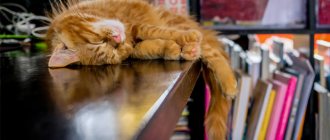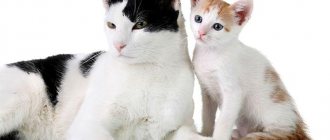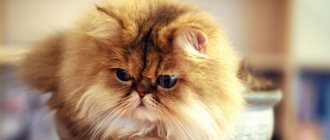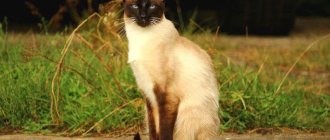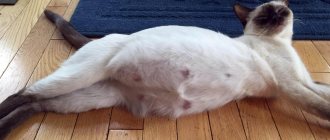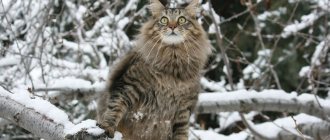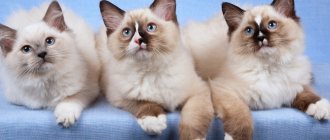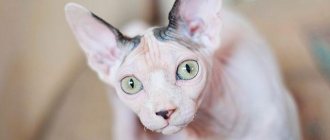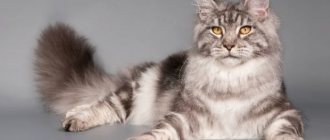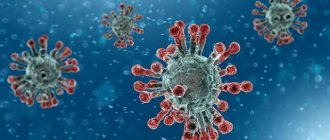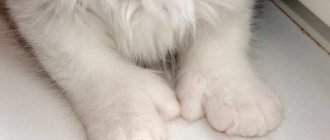Many potential Maine Coon owners wonder how long cats of this breed can live. There is a misconception that due to their large size, Maine Coons do not live long. This scares some people away and even makes them decide not to buy a kitten. And many of those who decide to purchase a pet are later very worried about the fact that it may leave them prematurely. But what is the life expectancy of Maine Coons and what can be done to make the cat live longer?
Hereditary diseases in Maine Coons
The most serious genetic diseases of Maine Coons are associated with muscles, joints and the cardiovascular system. Perhaps the most harmless of them is dysplasia or underdevelopment of the epiphyses (heads) of the hip joints, which affects about 20% of all maines. Although the disease itself is not fatal, it is fraught with very unpleasant complications. The result of epiphyseal dysplasia can be dislocations and pre-dislocations of the hip, and the risk of fracture of the femoral neck also increases.
In addition to hereditary predisposition, dysplasia is also caused by poor diet - if your cat overeats and is overweight, he is more likely to have joint problems.
However, even if this happened, there is no reason to despair - modern veterinary technologies even allow a cat to install a metal or polymer hip prosthesis, thanks to which it can lead a full life.
Much more dangerous is another disease typical of the Manx breed - spinal muscular atrophy. Essentially, this means that the cat’s muscles are naturally weak and may even atrophy altogether. However, this disease, which occurs under the influence of a recessive gene, is now quite rare.
Hypertrophic cardiomyopathy - ruthless and insidious
Changes in the walls of the heart in hypertrophic cardiomyopathy
Finally, the biggest threat to the health and life of Maine Coons is thickening of the walls of the heart ventricles or hypertrophic cardiomyopathy. It is scary, first of all, because it may not manifest itself outwardly until sudden death without any apparent reason. With such a disease, the risk of blood clots and artery blockage is quite high, which quickly leads to the saddest ending. There is a way out - abdominal vascular surgery - but if symptoms of thrombosis appear, minutes are literally counting, otherwise you may lose your pet. A sign of this is, first of all, the so-called spastic paralysis - hardening of the muscles on the hind legs, accompanied by severe pain. If your cat’s hind legs are convulsively extended and do not bend, and in this case he meows pitifully, run to the veterinary clinic without wasting a second.
To rule out cardiomyopathy, it would be wise to have your cat undergo regular ultrasound examinations. Also, warning signs can be:
- difficulty breathing, shortness of breath (even if the cat did not run before);
- decreased mobility, lethargy, drowsiness;
- blue discoloration of the mucous membranes of the mouth and the inner surface of the ears.
Stool disorder.
For a person, stool disorder is nothing more than a nuisance; for a kitten, this is the first indicator that should sound the alarm. This, of course, could be a banal failure of the intestines due to stress, or as they say, “I ate something wrong,” or it could be the beginning of a serious illness. No animal is immune from disease and illness, so you need to know basic things about diarrhea. Loose stools can indicate many problems. Maine Coons suffer from this no less often than other cats, which also applies to kittens.
Dangerous foods for Maine Coons include:
- fatty, spicy foods, including vegetable oils;
- spoiled food;
- carrion;
Severe poisoning and diarrhea are possible when consuming:
- household chemicals;
- some plants (dieffenbachia, schefflera, ivy, hyacinth)
- paints;
- resinous substances;
- petroleum products;
- alcohol;
- mushrooms
First aid for an adult animal and a kitten is necessary to avoid dehydration. Mild diarrhea can be prevented at home by following the advice of veterinarians:
- Limit food or do not feed for 12-24 hours
- Provide free access to boiled water
- Give activated carbon / smecta / interosgel (infused through a syringe without a needle)
- Drink chamomile infusion, cooled to room temperature
If the situation has not changed within a day, the diarrhea continues or intensifies, then the pet must be shown to a veterinarian.
What are the risks of violating the care regimen?
In addition to diseases caused by genetics, the health of the Maine Coon can also be threatened by those that arise due to improper nutrition and care. In this case, these are kidney stones (a generally quite common problem among cats), gum disease and gastrointestinal tract diseases. It is quite easy to prevent such troubles; it is enough to strictly follow the rules for keeping mains.
What to feed?
The basis of natural nutrition should be high-quality meat
Dry food should only be premium class; if the cat is naturally fed, the products should be used only the freshest and highest quality. Meat should make up the majority of the diet: beef, chicken, rabbit, turkey. In addition to meat, Maine needs vegetables (cauliflower, carrots, pumpkin, beets, etc.), cereals (except rolled oats, which can cause carbon imbalance), low-fat fermented milk products (cottage cheese, sour cream, natural yogurt), eggs ( chicken or quail).
What is prohibited?
The following products are prohibited:
- pork, fatty meat, smoked meats, sausages;
- sweets, candies, chocolate;
- chicken and fish bones;
- starchy vegetables (potatoes, etc.);
- legumes (beans, peas, etc.);
- any dishes from the host’s table, especially those with the addition of pepper and other spices.
Despite the widespread stereotype about the benefits of a fish table for cats, when feeding a cat of the “raccoon” breed, it is better to avoid fish. Its high fluoride content promotes kidney stone formation. A little sea fish is permissible, but not more than once every two weeks, and not if your cat is neutered.
Life extension
In order for the Maine Coon to live longer, its owner needs to take good care of it, feed it properly, maintain it and carry out veterinary measures on time. If your pet gets sick, it is necessary to start treating it as soon as possible, as this will help reduce the risk of complications and, ultimately, prolong its life.
Care
Caring for a cat includes a mandatory daily examination, as well as systematic combing of the coat, cleaning of the eyes, ears, teeth and trimming of claws. These simple measures will help prevent health problems.
Before bringing your pet into the house, you need to make sure that the furniture is securely fastened and will not fall off when the cat jumps.
It is better to move all unstable objects, as well as indoor plants, to a place where the cat cannot reach them. Medicines, cosmetics and household chemicals should be stored in closed boxes.
Nutrition
Proper nutrition plays a big role in the lifespan of Maine Coons. From the very first day a kitten arrives in the house, it is very important to feed it either high-quality industrial food of premium class or higher, or nutritious homemade food.
Industrial food is selected according to the age and needs of the cat. There are special diets for kittens, for pregnant and lactating cats, and for older animals. If the cat suffers from chronic diseases, then it should be fed with dietary food, which is recommended by the veterinarian.
You cannot overfeed a Maine Coon, as this leads to obesity and significantly shortens its life.
Physical exercise
For a pet to live a long time, it must lead an active lifestyle. You need to play outdoor games with your Maine Coon more often; walks in the fresh air are also beneficial for animals. But in the city you should not let your cat go for a walk on his own: it will be better if the pet is outside under the supervision of the owner. A good solution would be to equip a special play corner for the Maine Coon, where he can freely play and jump on top, that is, do what cats do in the wild.
Disease Prevention
To reduce the risk of contracting infections, it is necessary to vaccinate your cat promptly. Preventive anthelmintic and flea treatments are also mandatory. If an animal is sick, you need to take it to a veterinary clinic as soon as possible so that the doctor can make a diagnosis and prescribe treatment. It is impossible to treat cats on your own with whatever you can, following the dubious recommendations of non-specialists, as this can cause irreparable harm to their health.
It is necessary to keep the condition of the pet’s cardiovascular system and musculoskeletal system under control, for which it is recommended to carry out preventive examinations in the clinic.
To keep the kun healthy
Special complexes help organize a sufficient level of activity for the coon
Problems with teeth and gums can be avoided by regular brushing using a soft brush and special cat paste. And don’t forget to check if the cat has plaque or tartar – if they appear, it is quite possible that the teeth will have to be cleaned with an ultrasound at the veterinarian.
It is very important that your Coon has the opportunity to move and play a lot - cats of this breed are hereditary hunters and cannot be just “sofa cushions”. For the Maine Coon, it is necessary to equip a corner with a platform and various “sports equipment”. Physical activity is the key to your pet’s health and long life.
Causes of premature death
Common causes of death:
- Carelessness and carelessness of the owners - the most common cause of death is a fall from a great height (due to the structural features of the cat’s body, it is difficult to stay in narrow areas, the tail does not participate in the landing when falling), therefore it is not recommended to leave windows and loggias open;
- Choking and poisoning - Maine Coons tend to try all available objects on their teeth, as a result they can choke on earrings, flash drives, caps from cosmetics, cases have been recorded when a cat chewed bags of bleach or salt, the lack of timely veterinary care can lead to death;
- Food of poor quality - owners are often too lazy to cook for their pets, buy dry food or give food from their own table, which can be harmful to the animal due to the special development of internal organs and sensitive intestines.
And finally
There can be no definitive answer to the question of how many years your Maine Coon will live and whether he will always be healthy. On average, Maines live 12-15 years, but in some individual cases the age limit can increase to eighteen years or more. Of course, the Manx breed has hereditary risk factors (like almost all animals), but this risk will be significantly lower if you purchase a kitten from trusted breeders. And with proper maintenance and your tireless care, your pet will delight you for many years to come.
Many examples of long-lived coons can be seen on the forum of owners of these wonderful animals:
Long-lived representatives of the breed
With proper care, a pet can live up to 20 years or even more.
In 2020, a Maine Coon cat living in the USA, Oregon, was included in the Guinness Book of Records. His age reached 26 years at that time. The owner developed a special diet for the animal. The cat is allowed to walk outside and hunt birds. His owner believes that properly selected food and walks allowed the pet to live for so long.
There is a cat in the UK who is about 31 years old. Owners do not register the record because they are afraid that their pet will not be able to endure the necessary procedures due to age.
Signs of a sick animal
Even a non-professional, knowing his cat, can almost immediately notice something wrong with his pet. As a rule, with any disease, a cat becomes apathetic, tries to move less, does not play, sleeps a lot, and hides in secluded places.
If at least one of the following signs appears in your cat, you should pay special attention to it and contact a veterinarian if necessary:
- Loss of appetite, increased thirst;
- Dull, matted, greasy coat;
- Purulent eyes or nose, black, dirty ear cavity;
- Cough, shortness of breath;
- Diarrhea, constipation, urinating too frequently or vice versa;
- A pitiful meow, especially when picked up or touched;
- Temperature increase;
- Vomit;
- Blood in stool or urine;
- Lameness.
Signs of a healthy animal
A healthy cat, no matter what character and temperament it has, always has a number of signs that a completely healthy Maine Coon should have:
- Mobility and cheerful mood;
- A good appetite;
- Smooth breathing and a clean, slightly damp nose;
- Clean eyes and ears;
- Clean well-groomed coat;
- Regular urination and bowel movements;
- Temperature 37.5 – 39 °C;
- Pulse 110-130 beats/min;
- Breathing 16-30 times/min.
